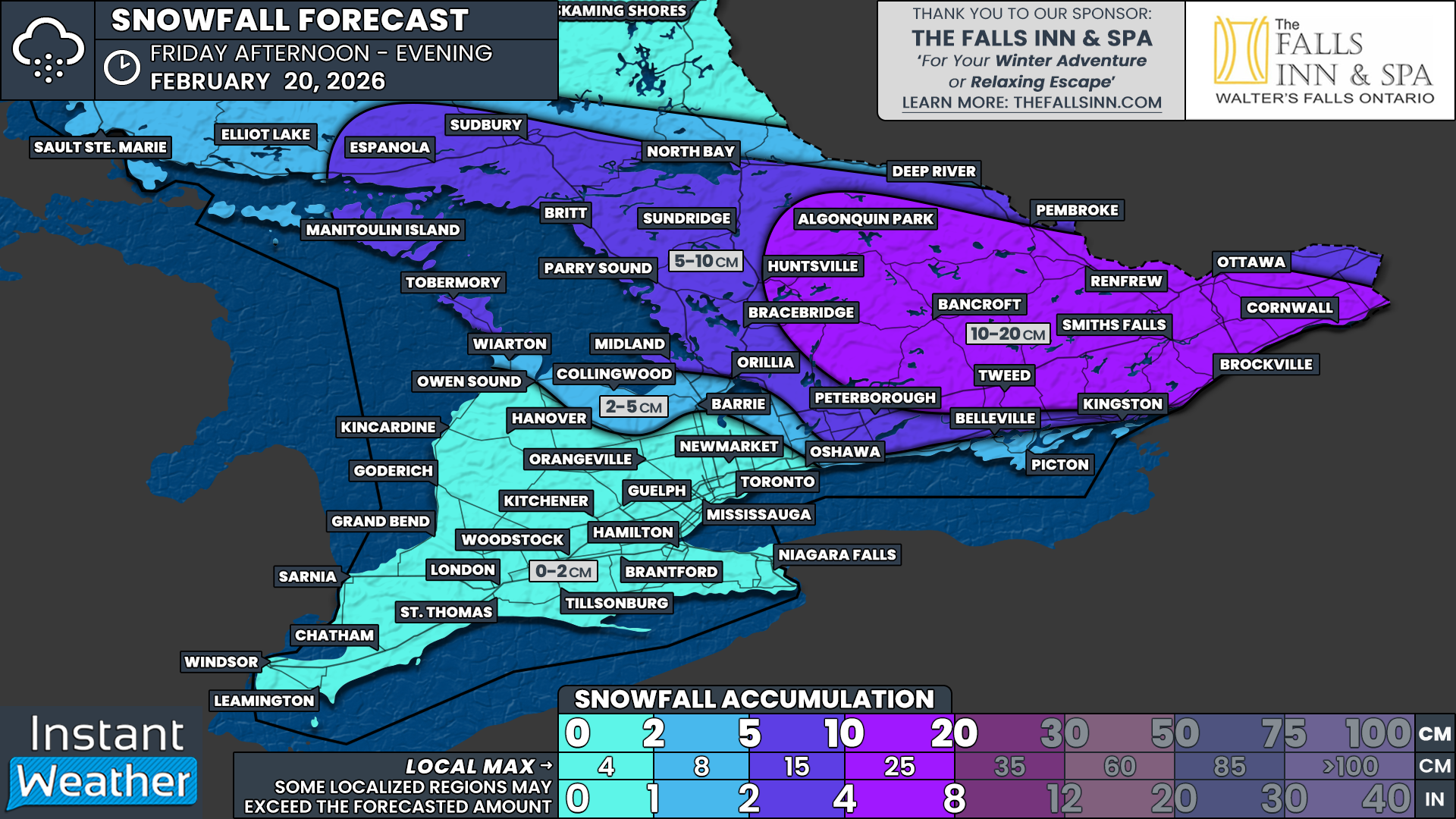Incoming Storm's Shift Expected to Keep Heaviest Snow Out of the Maritimes, Widespread 5-10cm By Friday Afternoon
/For the past several days, we’ve been tracking the development of a winter storm, with a considerable freezing rain component, set to impact the Maritimes later in the week.
Thankfully, the projected track of the storm has taken a southward shift, ahead of the storm’s development Wednesday afternoon. This will keep the heaviest precipitation from the storm, expected to fall mostly as snow, away from the Maritimes as it approaches the region on Thursday.
Model Image showing the location and intensity of snow (Blue), Rain (Green), Freezing rain (Pink), and Ice pellets (Orange) at 3PM AT Thursday
The leading edge of the snow will arrive in Western Nova Scotia and Southwest New Brunswick in the mid-afternoon Thursday, shortly after 3pm. It will cross the region fairly quickly, reaching Prince Edward Island in the evening, around 7-8pm and Cape Breton Island by 9pm.
Some heavier snow is anticipated to move into Western Nova Scotia in the early evening and this area can expect to be on the top end of the 5-10cm range, with local amounts even exceeding 10cm.
While this snowfall is crossing the Maritimes, warm air will surge northward into Nova Scotia. This will bring temperatures above freezing and result in a transition from snow to rain in Western Nova Scotia around 9pm, with a brief period of freezing rain or ice pellets in between. The temperature will also rise along the Fundy Coast of New Brunswick, but whether or not the transition to rain occurs here is questionable.
Some weather models show more of this freezing precipitation falling than others, but regardless, it shouldn’t amount to much. Temperatures are expected to climb above freezing with the transition to rain, melting any ice buildup that might occur.
Model Image showing the location and intensity of snow (Blue), Rain (Green), Freezing rain (Pink), and Ice pellets (Orange) at 8PM AT Thursday. Note: this particular model does not cover the entire maritimes.
As the system pushes northeastward across the Maritimes, the snow-to-rain transition will also cross Nova Scotia. The rain won’t last long, though, as the precipitation will start to exit the region beginning around 9-11pm.
All precipitation is expended to be finished by around sunrise on Friday, after a widespread 5-10cm of snow falls across most of the region. Lesser amounts will be measurable in Nova Scotia following the increase in temperatures and the rain melting what had previously fallen.
Strong winds aren’t expected to be much of a concern with this system. The winds will pick up Thursday evening, leading to gusts of up to 70km/h across Nova Scotia, PEI and Southern New Brunswick overnight and into Friday morning. The western edge of the Cape Breton Highlands, however, could see gusts in excess of 100km/h for a few hours Friday morning before dying down ahead of sunrise.
Looking ahead, we have our eye on another storm that could impact the Maritimes on Sunday and we will have more details on that in the coming days.









